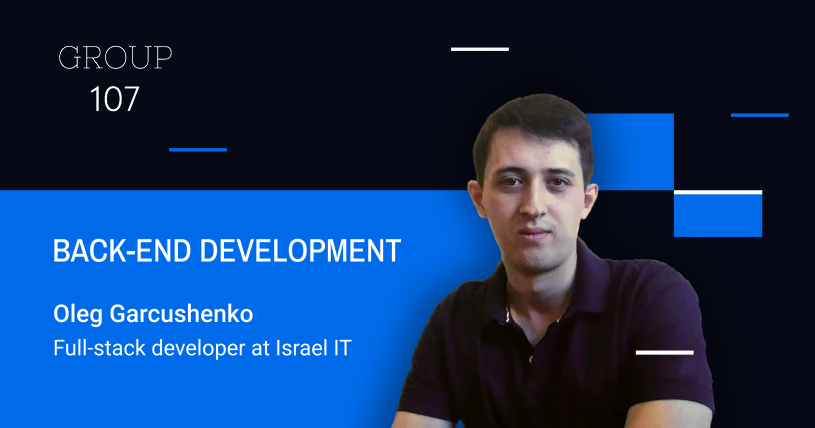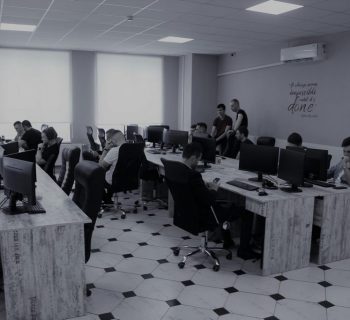Want to become a Back-End developer? Then keep reading, because in this article you can find the answers to your questions. Oleg Garcushenko, a full-stack developer at Group 107, shared his multifaceted experience and knowledge. He explained in details where the career of a back-end developer begins and answered the following questions:
•Who is a Back-End Developer and what is his role?
•What are the responsibilities of a Back-End developer?
•What skills should a Back-End developer have?
Who is a Back-End developer and what is his role?
To answer this question, you need to know what role the back-end itself plays in relation to web systems in general. For pragmatism web development has been divided into two main parts: front-end and back-end. We need to understand the role of each of them:
Back-End is a program that is located on the server and has access to the database and shares it with the frontend. Front-End is an interface with which the user interacts and if necessary refers to the server for the relevant data.
A back-end developer is a person who creates and maintains technologies that are hidden from the user’s eyes, they are outside user’s browser and computer — on the “back end”. For example, a person goes to the website of an online store, selects products by the desired category, makes a request to the server, where the backend processes this request and understands in which category the user wants to see the products. After that, he turns to the database with a request to receive goods according to a specific category. The database searches for all products belonging to this category and returns them to the back end, and the back-end returns them to the frontend in an agreed format.
So, now we understand the following sequence of client-server interaction: User action – request to the server – request is processing by the backend – access to the database – the database returns the relevant information – the backend returns it to the frontend – the frontend displays it in a user-friendly form.
What are the responsibilities of a Back-End developer?
The back-end developer must ensure that the website is scalable and can function well even under heavy loads. Depending on experience and skills, this position can be divided into the following levels:
Junior:
At this level, people do not have sufficient experience in using a particular technology and they usually work with the help of their colleagues. They help juniors in setting and selecting tools for the task. Juniors are entrusted with simple, non-critical tasks for the project. They must have knowledge and skills of programming languages… Junior’s responsibilities usually include:
-processing a request to the server
-receiving data from the database
Middle:
At this level, a person can perform tasks independently, but with a minimal support from colleagues. Responsibilities at this level may include tasks such as the development of a significant portion of the software interface (such as an authorisation service) and knowledge of modular testing is required.
Senior:
Senior developer makes the greatest contribution to non-standard and difficult tasks. They should have project construction skills:
-architecture design
-analysis of business needs
-estimation of time spent.
The senior is some sort of a manager and is responsible for data security. In general, back-end developers need to be able to code well, manage the server environment and troubleshoot the development process.
What skills should a Back-End developer have?
I think that a person who wants to be a back-end developer should have the following soft skills:
• successfully lead and implement complex projects;
• be able to take responsibility;
• pay attention to details
• think analytically
• be able to work in a team
• be proactive
As to the hard skills, a specialist should:
•be fluent in at least one of the following programming languages:
C#, NodeJS, PHP, Python, Java.
• know frameworks for these programming languages:
C # – .NET; NodeJS – Express, Nest.js; PHP – Laravel; Python – Django; Java – Spring.
• be able to work with MySLQ, MongoDB, PostgreSQL and so on.
• knowledge of SOAP and REST.
To summarize, I can say that the back-end is the core of any web “stage”, and the developer is its main artist.


